Assam Friends Create 100% Natural Teabags Out of Leaves Plucked Directly From Farms
Conventional tea bags are made of microplastic. In a brilliant innovation, Assam-based Upamanyu and Ashuman are creating biodegradable tea bags out of leaves under their startup 'Wooláh'.
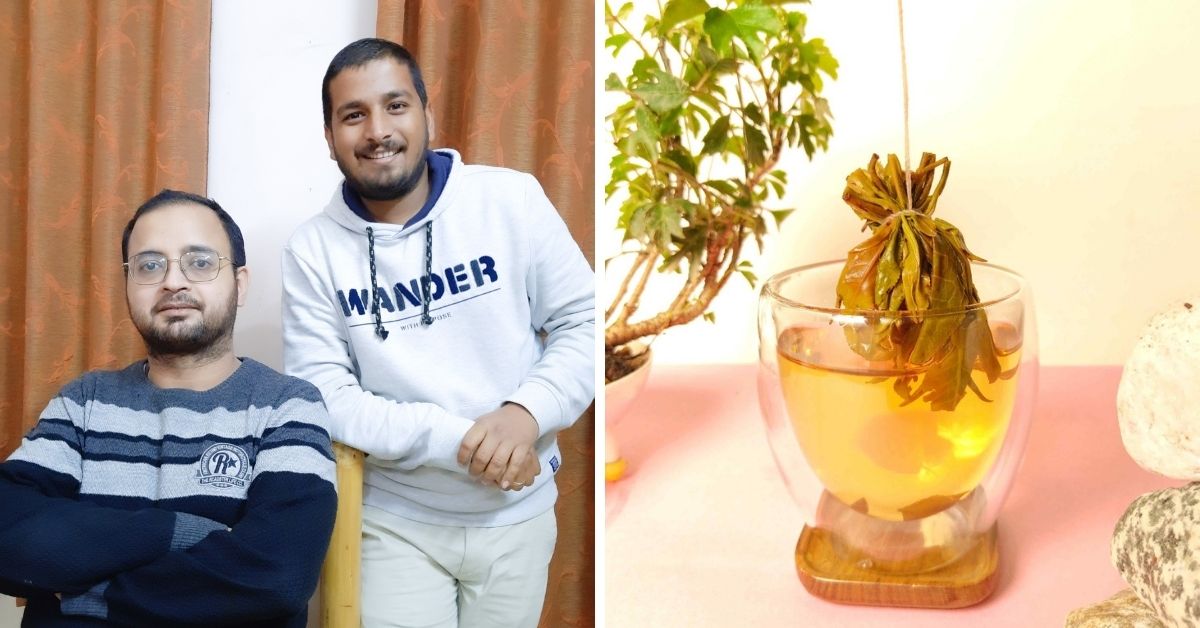
Did you know one tea bag releases 11.6 billion microplastic particles and 3.1 billion nano plastic particles in a cup at brewing temperature? A study by the McGill University in Canada recently found that the tea bags we use are not as safe as we believe them to be.
Using teabags indirectly harms both the environment as well as our health. Even while using them for composting, plants will end up consuming toxic elements.
In order to do away with this problem, Assam-based tea company, The Tea Leaf Theory (TTLT) has come up with a one-of-its kind dip with eco-friendly bags that are made of leaves.
Launched under their brand Wooláh and labelled Truedips, the bags are essentially two compressed leaves and a bud (unopened leaf at the tip of a branch) weighing around two grams and shaped in a cylindrical form, tied with a raw and naturally grown cotton string.
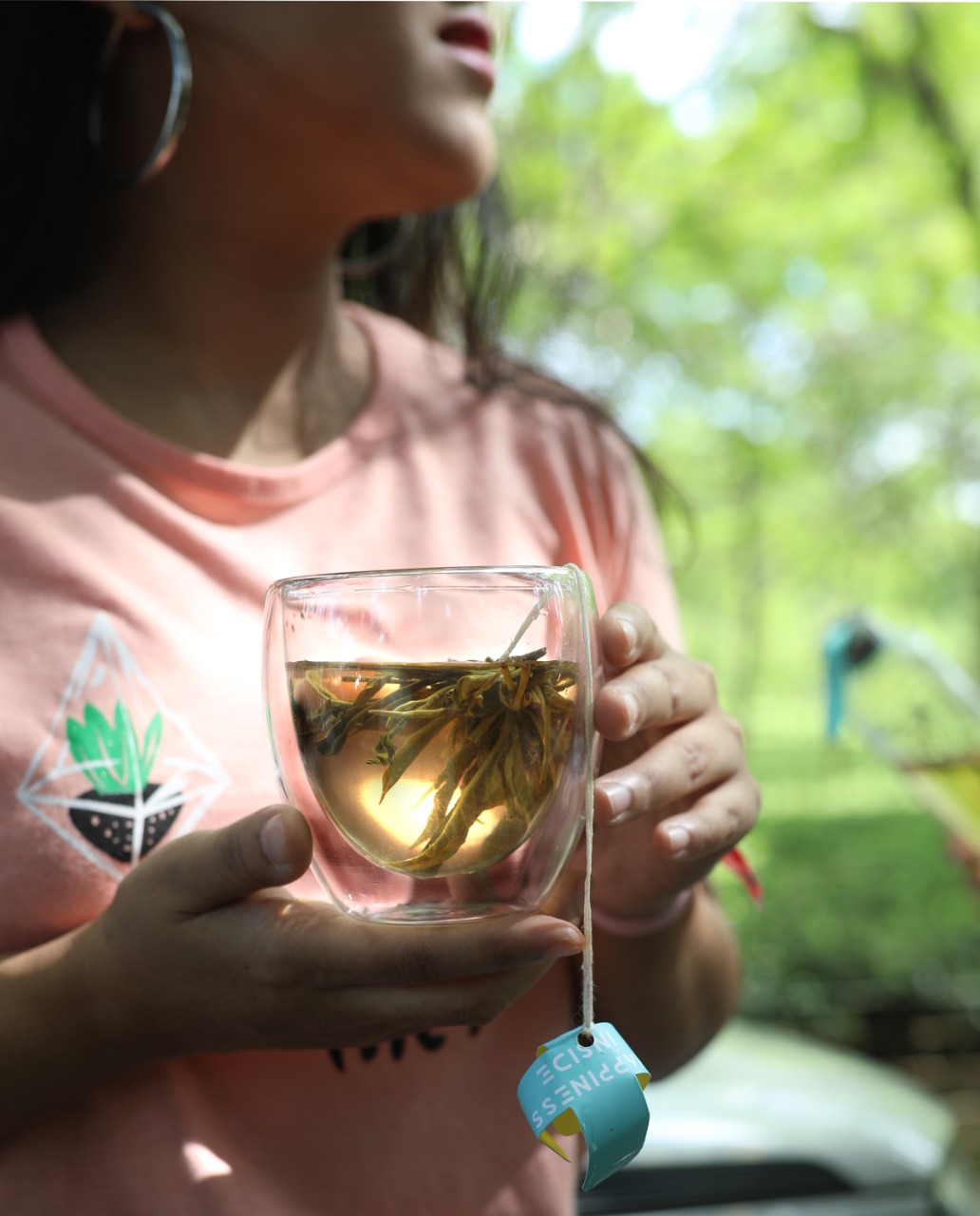
“While Truedip’s look is the same as a conventional teabag, the quality, aroma and taste set it apart. The unbroken tea leaves used as packaging material lessen the bitterness of the tea, and offer a fresh and flavourful cup,” Upamanyu Borkakoty, co-founder of TTLT tells The Better India.
Upamanyu started the company with his childhood friend, Anshuman Bharali, in 2016 to support small organic tea farmers in Assam, Meghalaya, and Darjeeling. It’s a B2B platform that sources authentic varieties of specialty teas from farmers, and sells them in domestic and international markets.
One leaf a time
The brand, which is patent-pending technology, derives its name from ulah, which means happiness in Assamese. It was launched a month ago to redefine Assam’s tryst with tea in a way that is healthy and natural.
Wooláh , unlike TTLT, is a DTC (direct to consumer) unit.
After gaining three years of experience in running a tea business, the founders decided to innovate their handcrafted specialty tea products. They invested TTLT’s profits back into the company, and trained two of their best farmers.
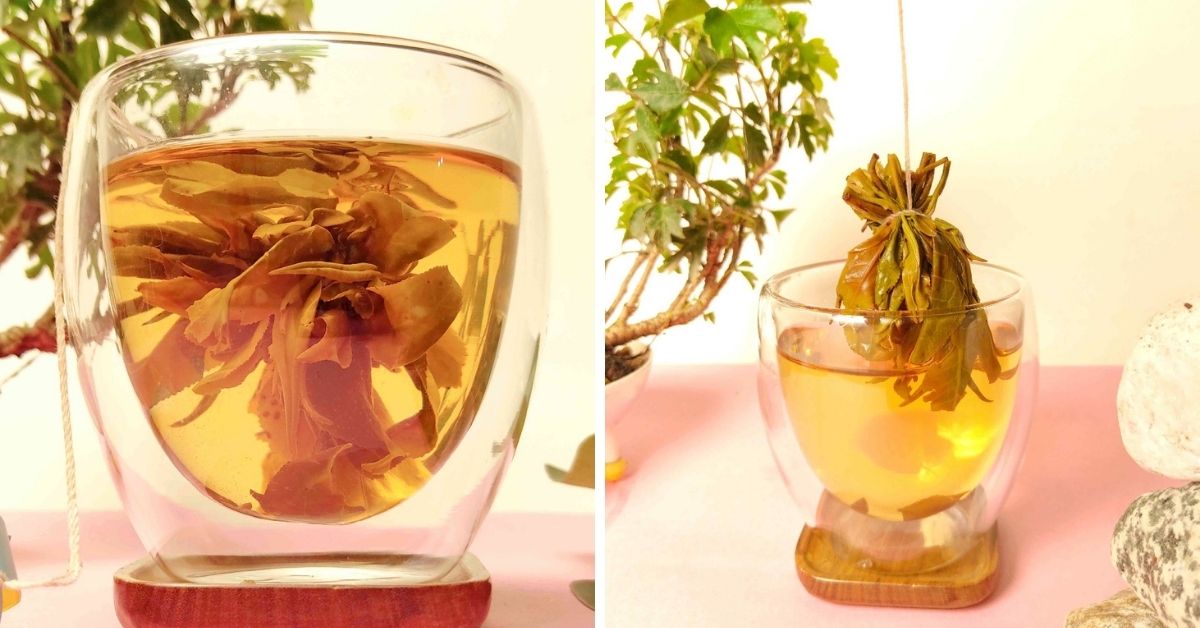
The growth and production of tea for Truedips is similar to their single-origin artisanal craft teas. However, after the leaves are plucked, they are compressed so they are not damaged during transportation and packaging. The leaves are tied together in a square shape, and each Truedip weighs 2 grams.
Though the process is tedious, it has generated employment for nearly 40 women engaged in the packaging process.
The best part, Upamanyu says, that unlike most other teabag processors, their entire process is completed at one place.
“Usually, the leaves are plucked from the farms and sent to another place for drying and sorting,” he says, adding, “From there, it is sent for packaging, and takes weeks before finally reaching the local seller. The women pluck teas from farms, compress it, and pack it. From here, it goes directly to the customer. This increases the shelf life of the leaves, as moisture does not seep in during multiple transportations.”
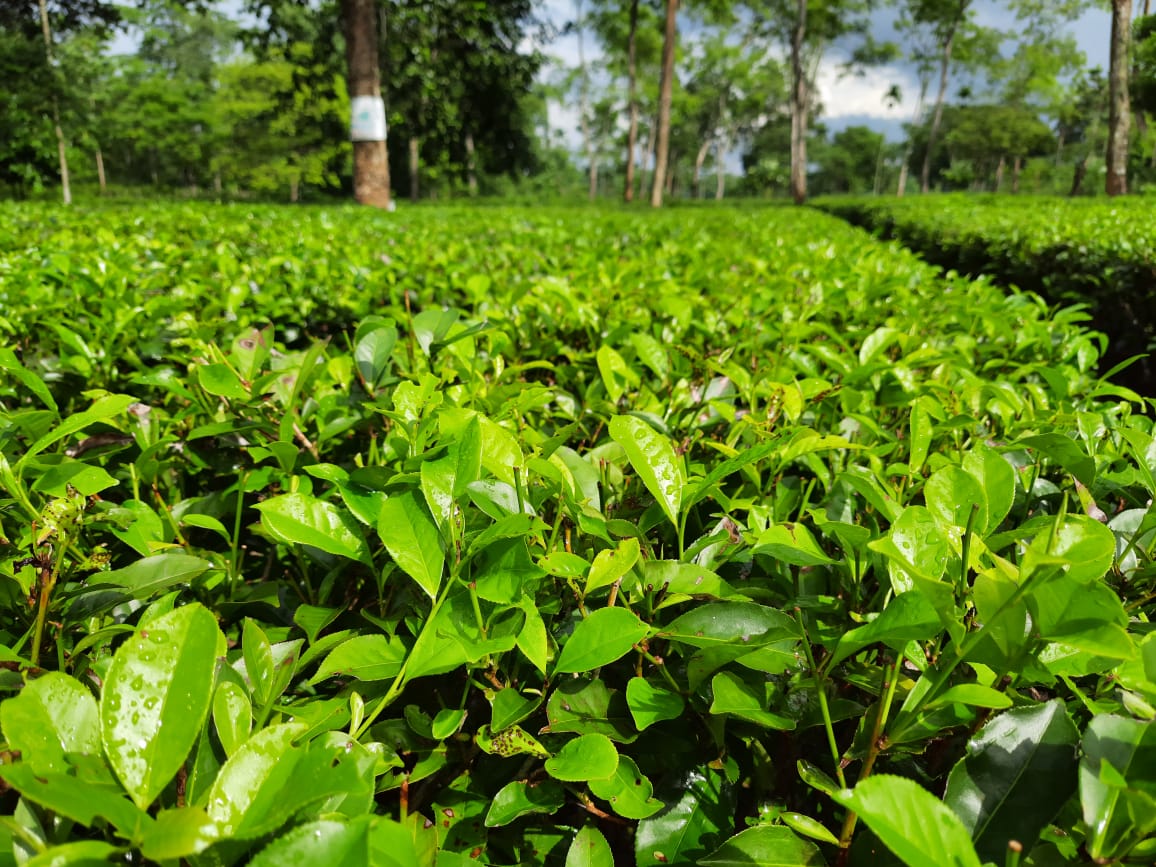
Once it reaches the customer, all he has to do is take the Truedip and put it in boiling water. The compressed leaves will unfurl in four to five minutes. One can use each sachet two to three times and, depending on their taste preference.
“We have received surprising feedback from customers, wherein they have brewed up to four cups per Truedip, with a little longer steeping time of around six to seven minutes for the third and fourth cup. This gives us immense confidence in the product, which was developed mainly to preserve leaves the way they were plucked, without any breakage, to deliver a pure and wholesome cup with a delicate finish,” Anshuman says.
Wooláh offers a myriad of flavours like Filthy Green (green tea), Filthy White (white tea), Dirty Detox (green tea with tulsi), Killer Immunity (black tea with tulsi) and the Brutal Combo (a mix of all the varieties).
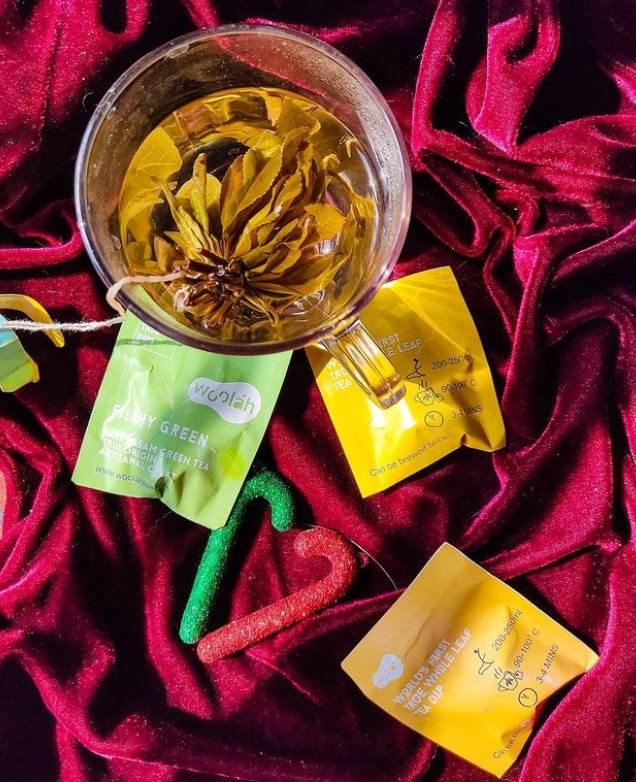
All varieties are priced at Rs 450, and each pack comes with 16 Truedips. Their larger sizes cost Rs 680 and have 28 bags.
Gurugram-based Sanjana has been a loyal customer of TTLT for a year now. She ordered the varieties as soon as they were launched and her favourite is Killer Immunity.
“The concept is very different from other green tea brands I have tried. The sachet contains tea leaves in their purest form. It almost feels like I plucked the leaves from the farm and dipped them in my cup. The flavours are authentic and one Truedrip gives me three to five cups of tea,” Sanjana tells The Better India.
Due to its quality and past credibility, the company has already served 500 customers within a month.
The story behind the tea
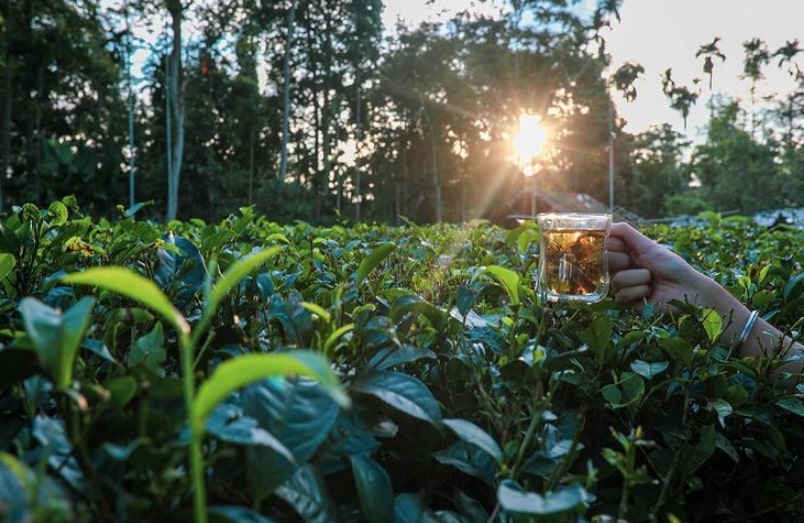
Upamanyu and Anshuman grew up in Sivasagar, a town in Upper Assam, known for its rich and diverse biodiversity. They shifted to Delhi for their respective corporate jobs in 2010. After gaining corporate experience of four years in marketing and finance, the duo returned to expand Anishman’s family optical business.
A few years into the business, they realised the market was not conducive to growth, due to inadequate distributors and a disruptive supply chain. So they ran the business till they paid off their debt and then ventured into the tea business.
“Assam is one of the largest tea producing regions in the world, and we were confident a tea venture would not sink. An interaction with a small-time farmer in Assam was the triggering point. He was selling naturally-grown handcrafted green tea packets, but with low margins. With further research, we learned there was a gap, as farmers with small landholdings did not have market access. That’s how TTLT was born,” recalls Upamanyu.
The duo travelled extensively across Assam, Darjeeling and Meghalaya in 2015 and collaborated with 15 farmers, who were equally passionate about growing the finest tea.
Instead of developing a standard taste and aroma for all the farmers, the duo worked towards building a distinct identity for each. So the teas are named after the village they are produced in. These include Latumoni, Koliapani, Mandal Gaon and Pareng.
“Weather, soil and water conditions differ in different parts of the Northeast, so demanding everyone to produce the same taste is unfair. We worked with each farmer individually to improve their existing techniques. Alongside, we developed a B2B model and tied up with 40 domestic and international stores selling teas,” says Anshuman.
High quality, high revenue
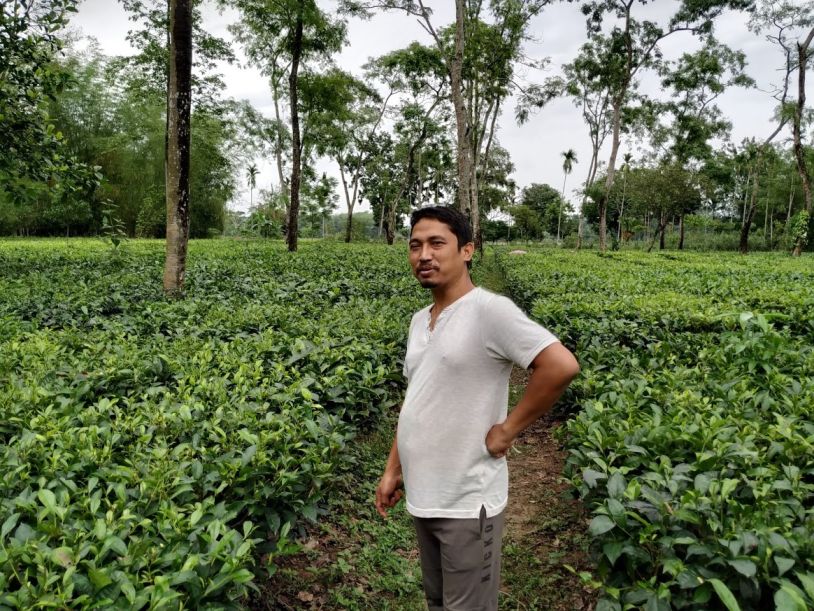
When TTLT met Rana Gogoi, a tea farmer in Sivasagar’s Koliapani village, his yearly turnover from selling green leaves was Rs 2,00,000. Nearly half of his produce would be rejected due to poor quality.
The company lent him money to set up a small processing factory at zero interest rate and helped him improve ]quality through various experiments. With an increase in production, he hired 31 labourers.
“I lacked knowledge about plucking, fermentation, rolling styles and oxidation (browning of tea) and that’s why our sales were poor. Things have drastically changed now, and last year, we clocked a revenue of Rs 12,00,000,” Gogoi tells The Better India.
Likewise, incomes of farmers with TTLT have increased and on average, their labour force earns around Rs 6,000 every month. Every farmer produces anywhere between 400-700 kilos of tea annually, thus scripting a success story from the hinterlands of the Northeast.
Get in touch with TTLT and Wooláh here.
(Edited by Divya Sethu)
Get in touch with the company here
If you found our stories insightful, informative, or even just enjoyable, we invite you to consider making a voluntary payment to support the work we do at The Better India. Your contribution helps us continue producing quality content that educates, inspires, and drives positive change.
Choose one of the payment options below for your contribution-
By paying for the stories you value, you directly contribute to sustaining our efforts focused on making a difference in the world. Together, let’s ensure that impactful stories continue to be told and shared, enriching lives and communities alike.
Thank you for your support. Here are some frequently asked questions you might find helpful to know why you are contributing?


This story made me
-
97
-
121
-
89
-
167











